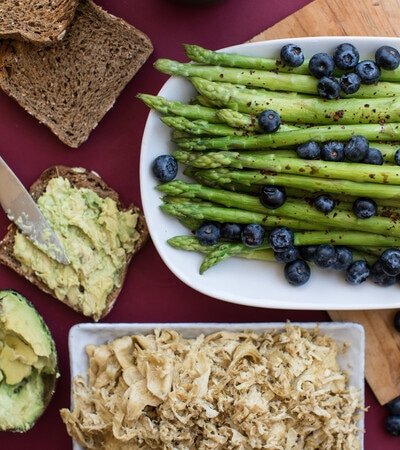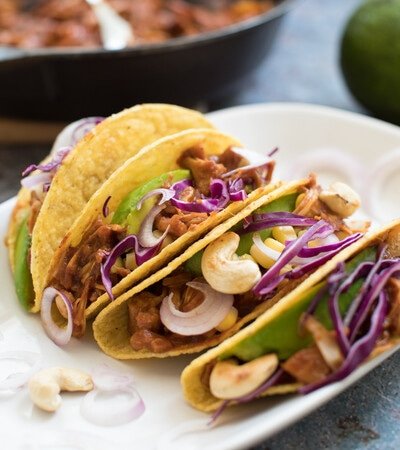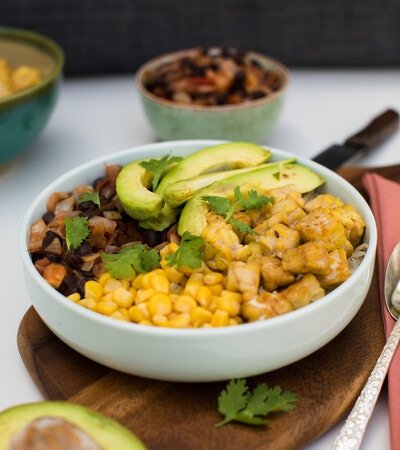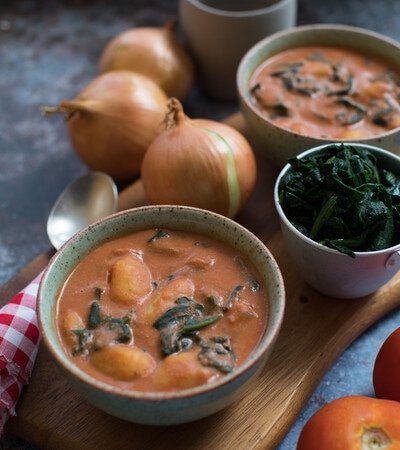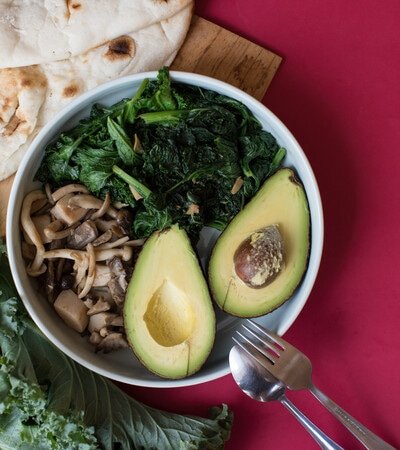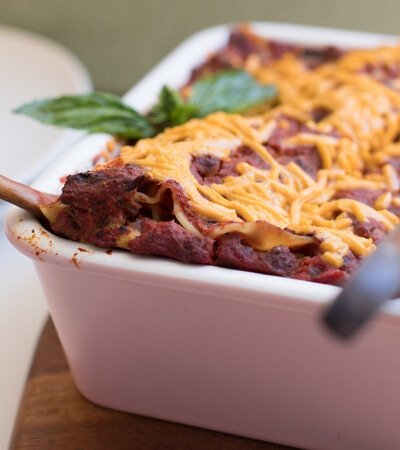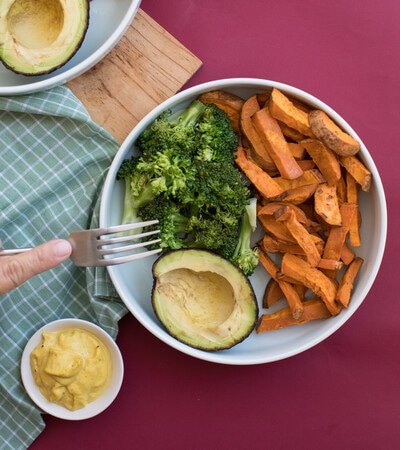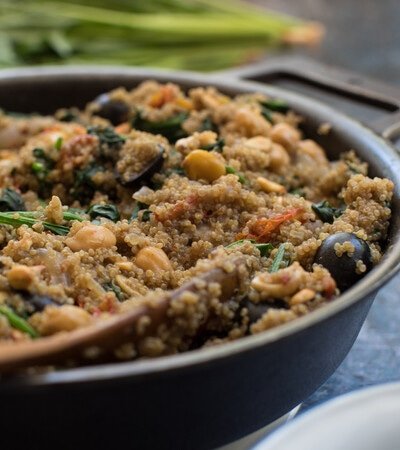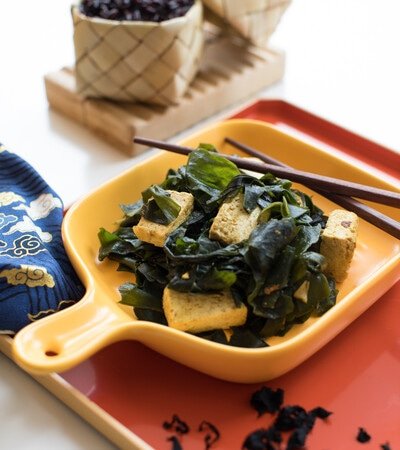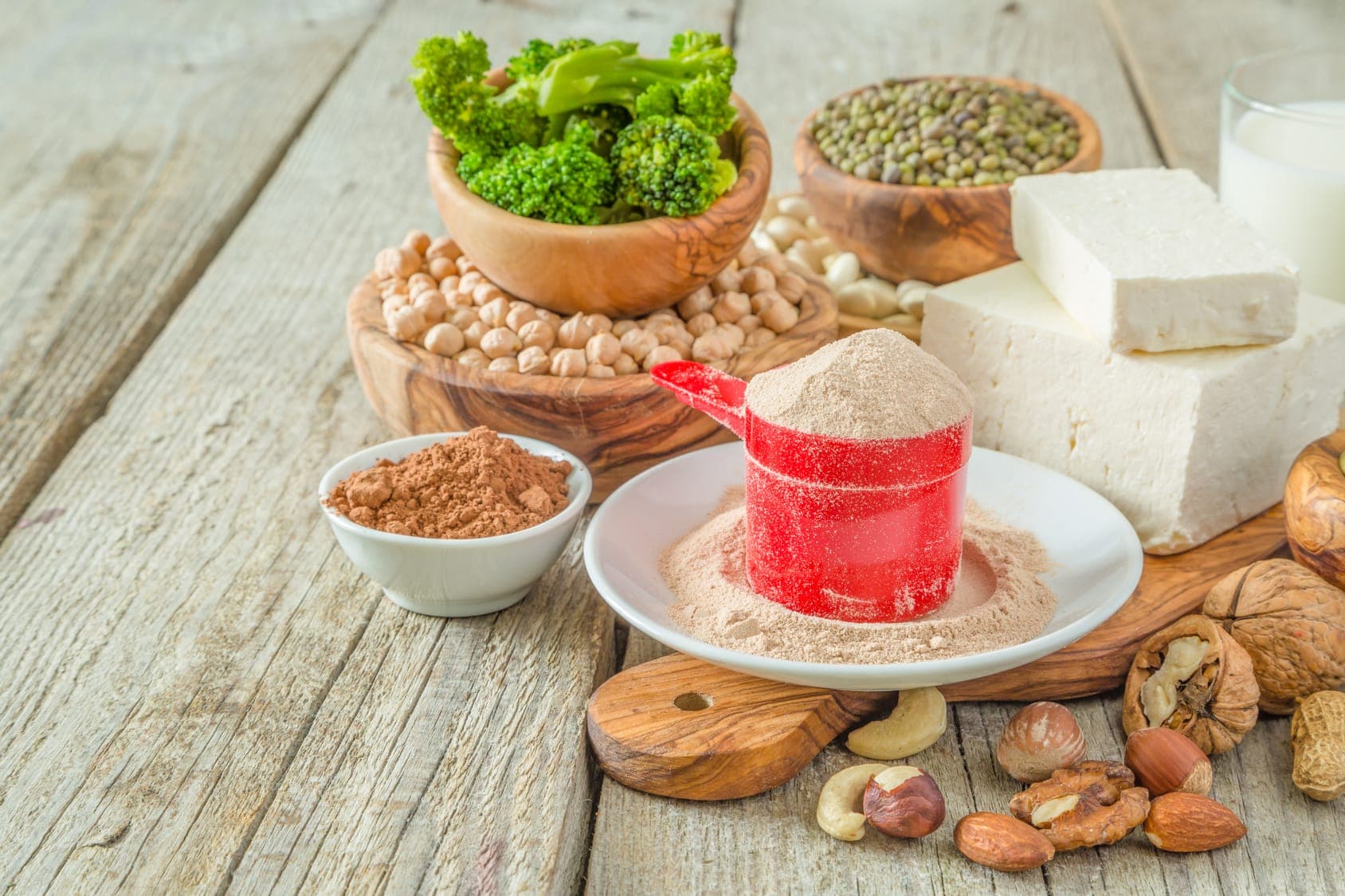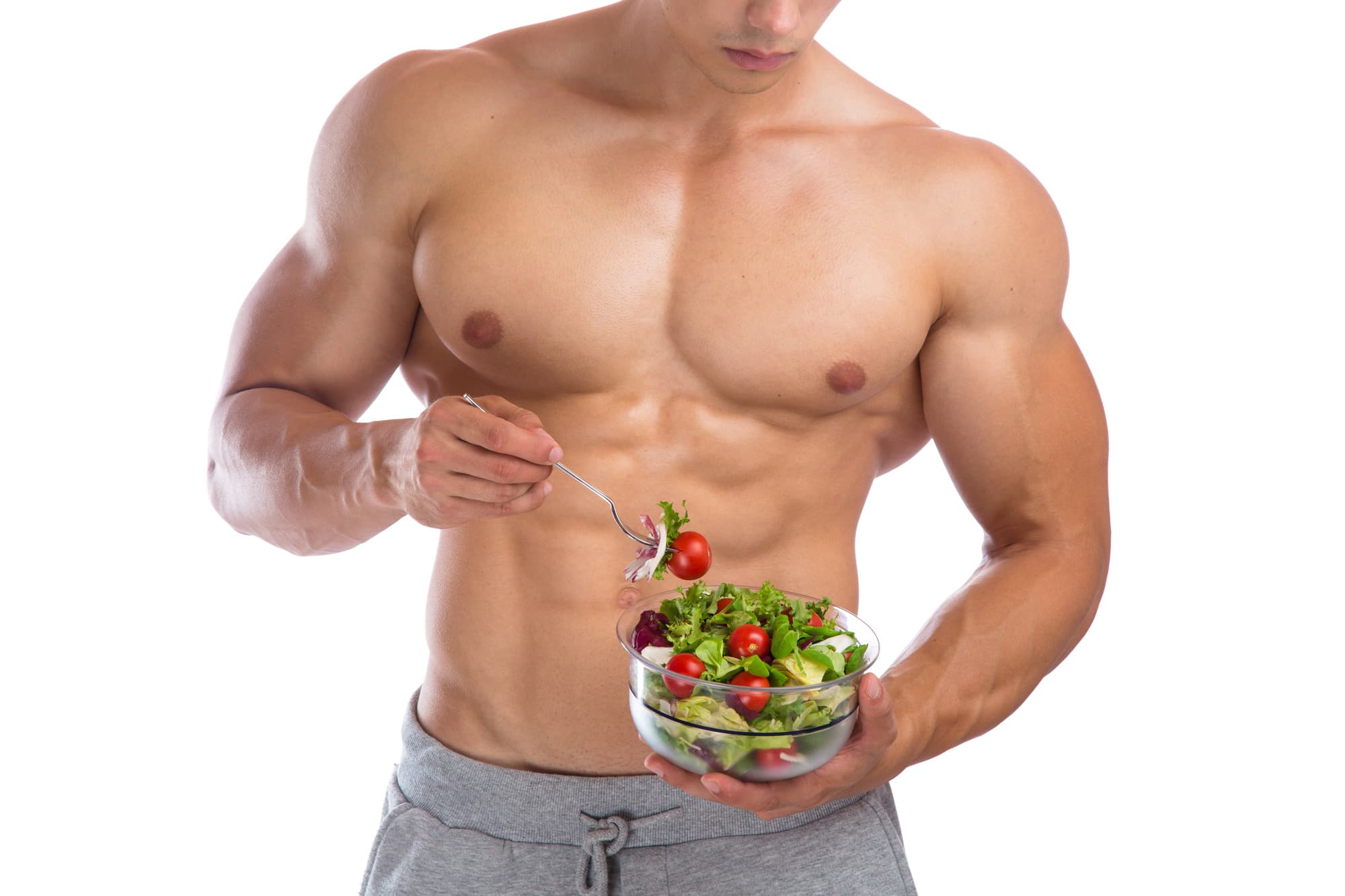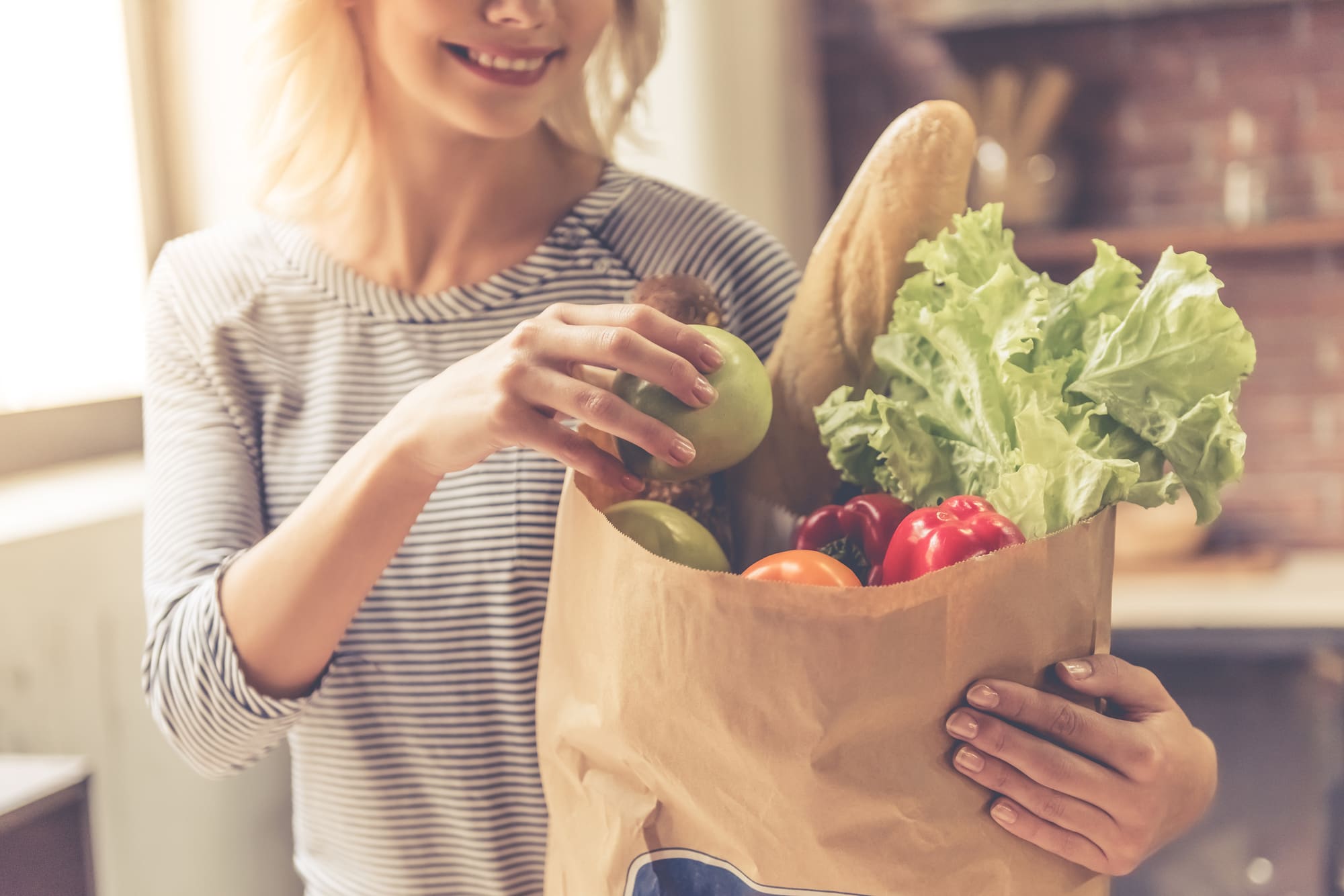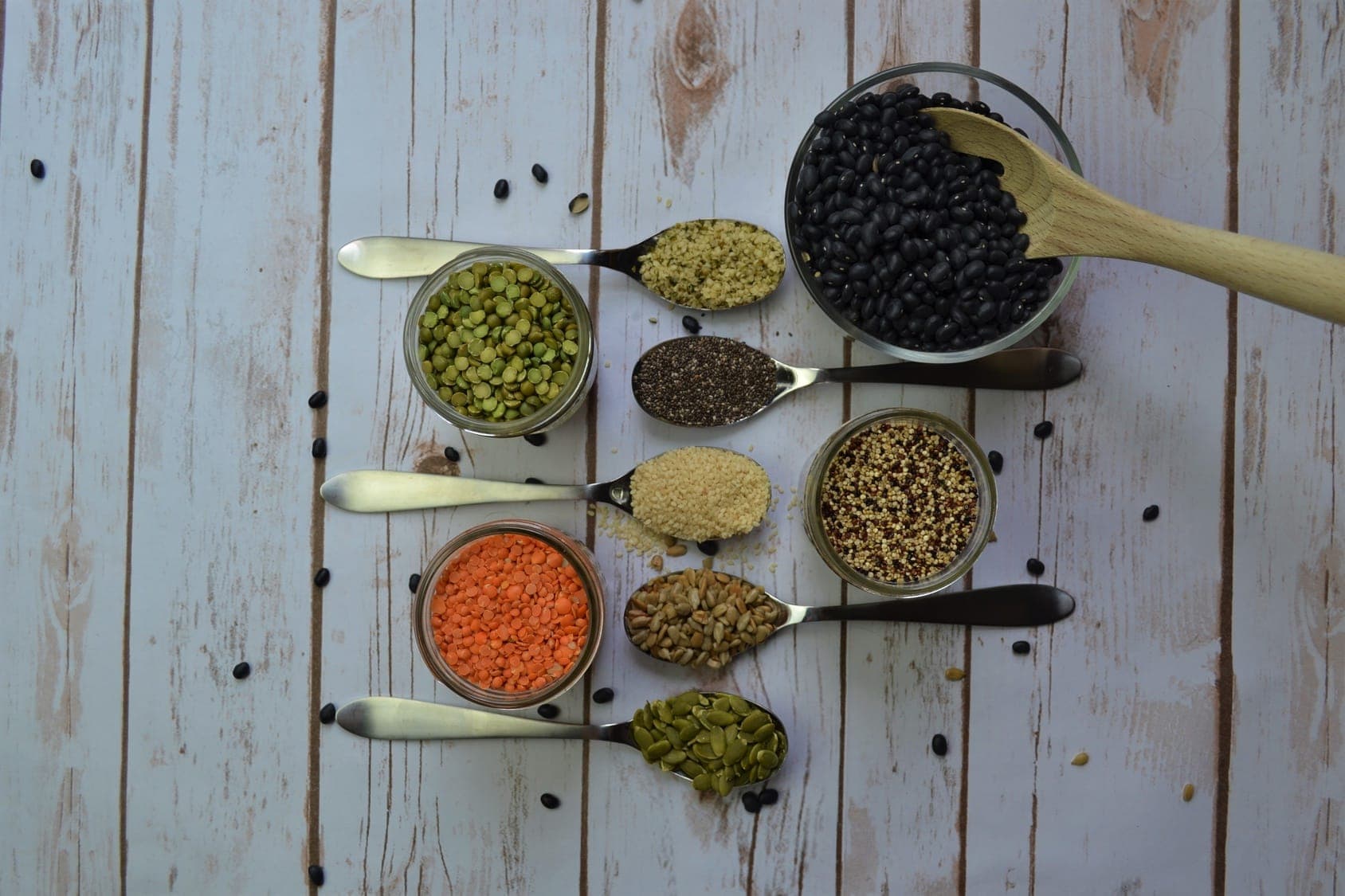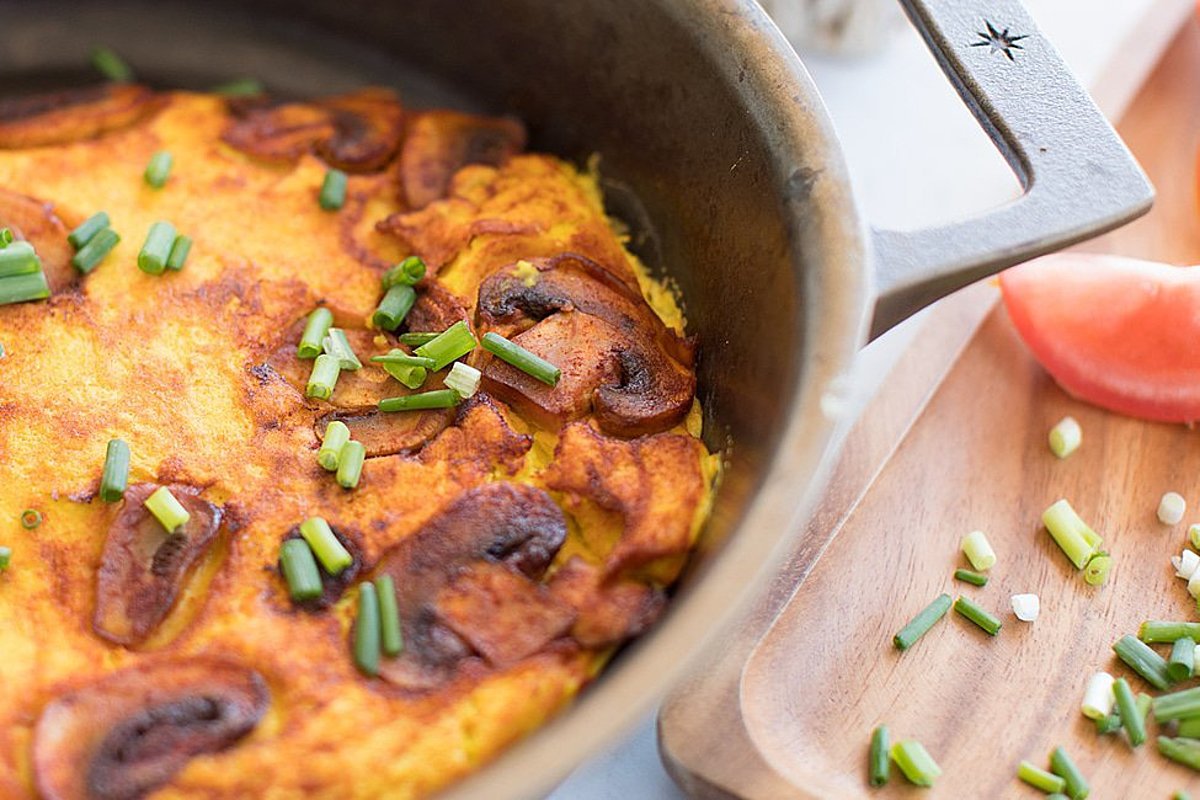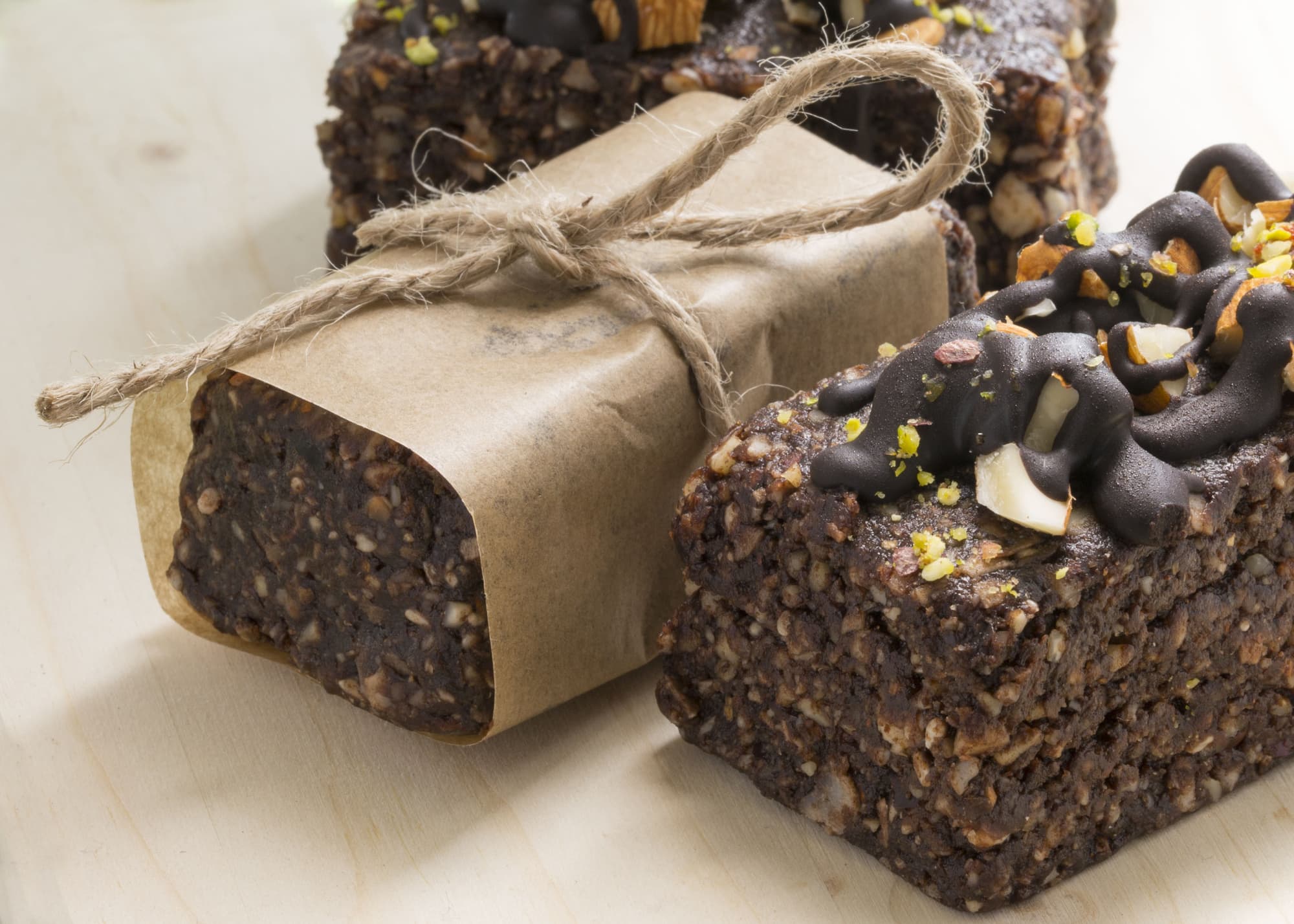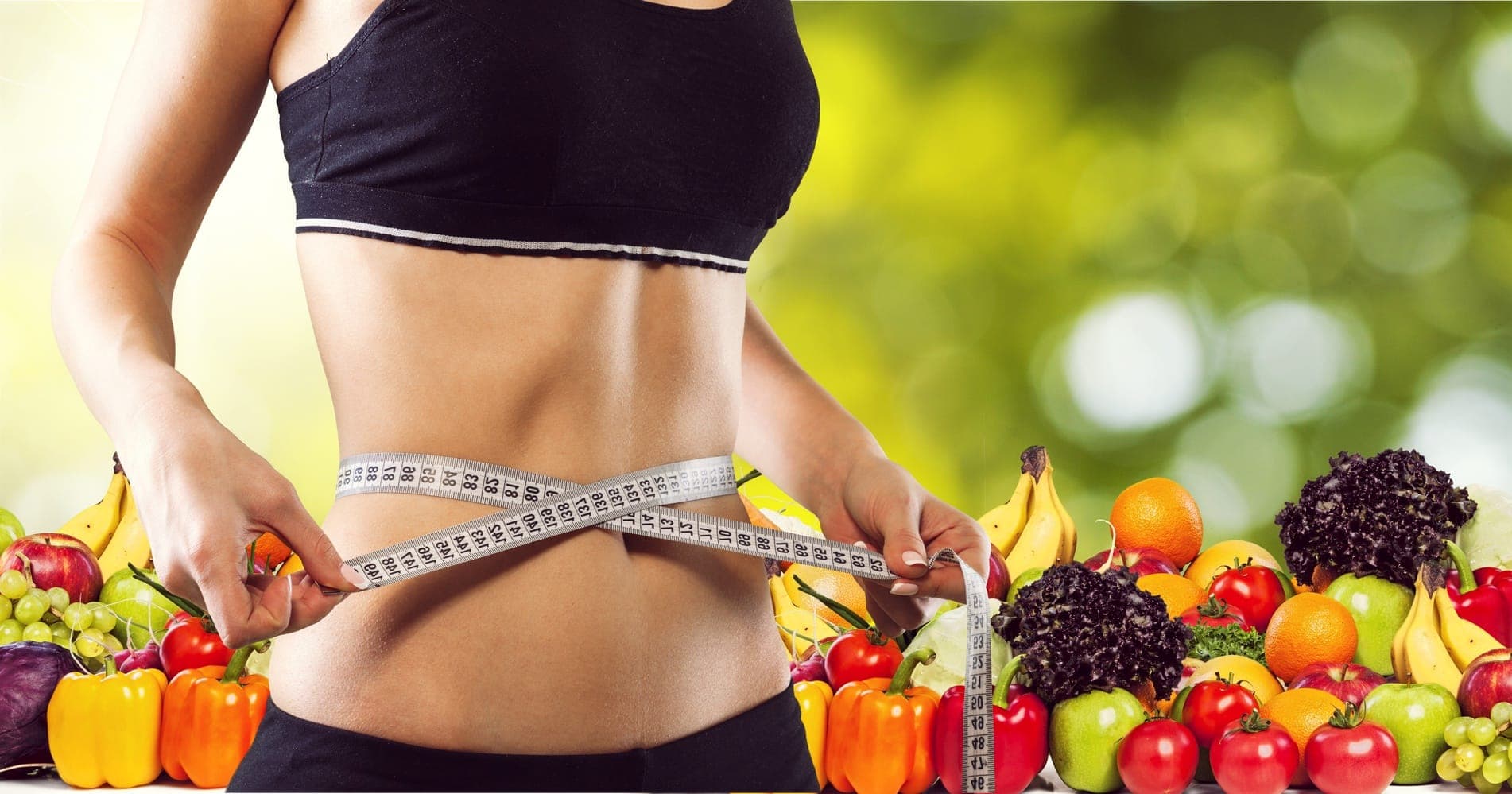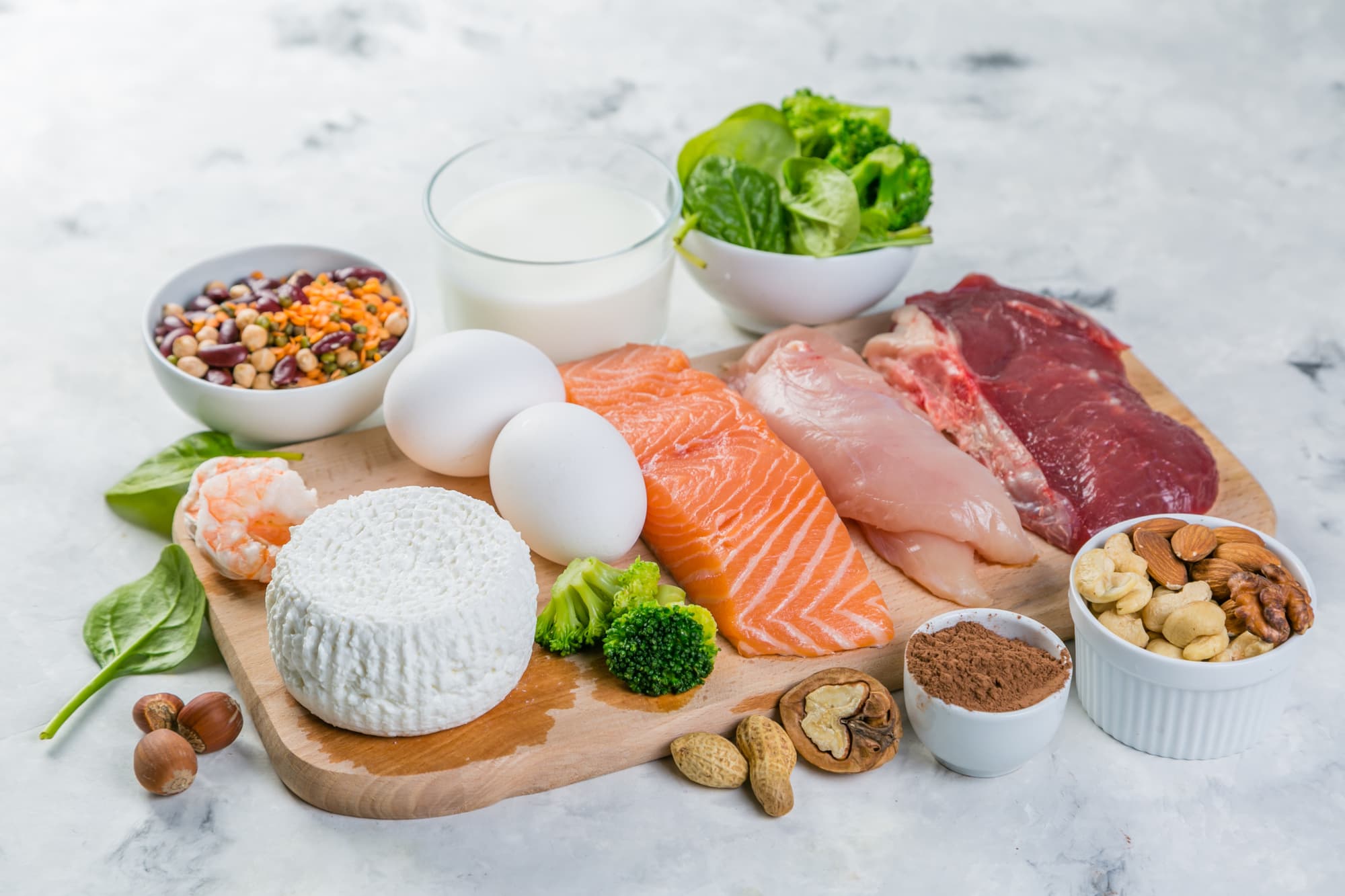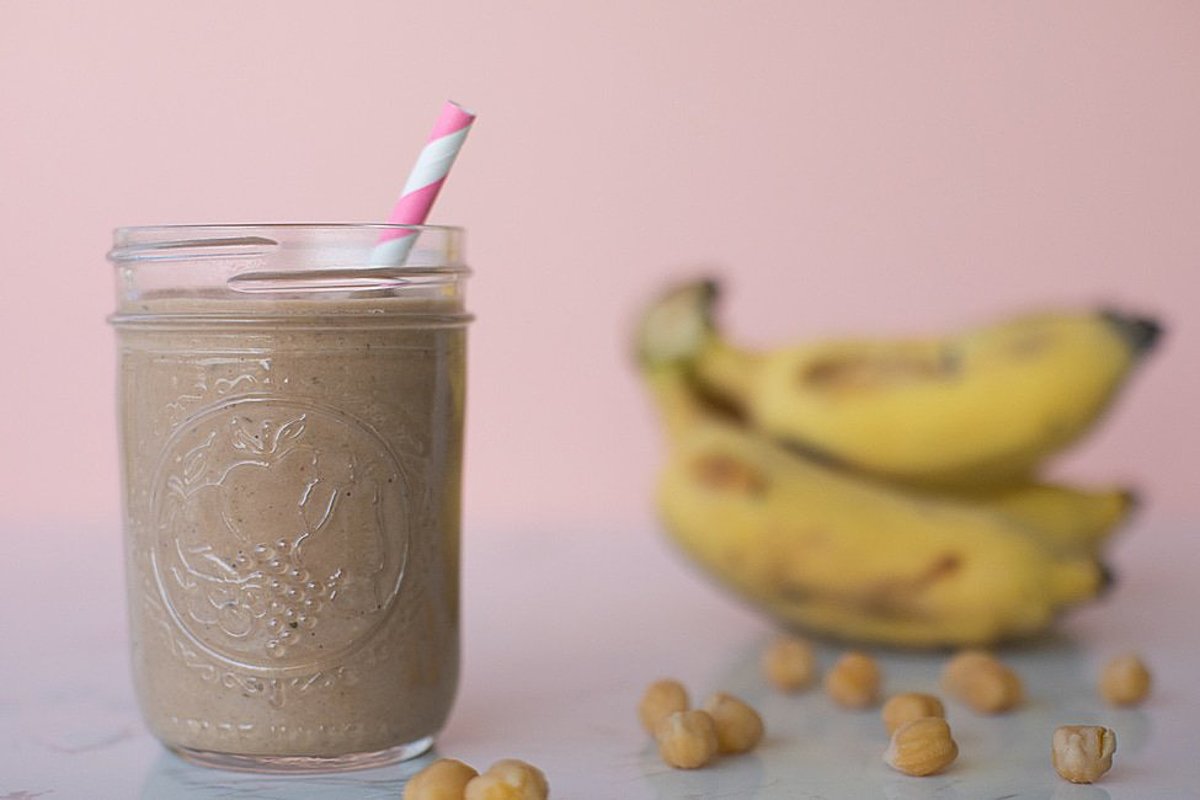
Word Count: 3647
Time to Read: 20 minutes
Contents
- Introduction
- Calorie Intake
- Macros
- Micros
- What to eat?
- Amino Acids
- Supplements
- Meal Frequency
- Vegan Bodybuilding Bulking Diet Plan and Grocery List
- Vegan Bodybuilding Cutting Diet Plan and Grocery List
- How to Create Your Own Vegan Bodybuilding Meal Plan
- Tracking
- Conclusion
- Sources
Introduction
Many people seem to think that it’s not possible to build muscle on a vegan diet. They’re wrong, but you don’t need to take our word for it! Just ask any of the many vegan bodybuilders
Unfortunately there are a few misconceptions about nutrition within the vegan community that lead to total failure at the gym.
Today I’m going to explain the ins and outs of a vegan bodybuilding diet in detail, give you a downloadable example vegan bodybuilding meal plan for bulking and one for cutting and provide you with the tools that you need to make your own meal plans.
So let’s get started!
The basic steps to following a vegan bodybuilding diet are the following:
- Calculate calories
- Calculate macros
- Create a meal plan
- Track your progress
- Repeat from step 1 as you progress.
Calorie Intake
Here’s the deal:
- If you want to gain weight you then you need to eat more than your body burns.
- If you want to cut fat then you need to eat than your body burns.
It’s known as “calories in calories out” (CICO).
So the first step to your weight goal is to calculate your calorie requirements.
How to Calculate Your Calorie Requirements
We need to start by calculating your basal metabolic rate (BMR). This is the your rate of energy expenditure at rest. The amount of calories you burn when doing absolutely nothing.
The formula for this (by Harris-Benedict) differs between the sexes. We need to plug in some variables. Your age, height and weight.
Then we need to factor in your activity level using a multiplier:
- x1.0: Sedentary
- x1.2: Very light activity
- x1.4: Light activity
- x1.6: Moderate activity
- x1.8: High activity
- x2.0: Extreme activity
Sedentary means doing nothing all day. Sitting around watching TV, or working a desk job with no physical activity.
Light activity means a non-physical job and some light activity like walking.
Moderate activity means a non-physical job, with some physical activity during the day, and also a workout session.
High activity means a non-physical job with 2x daily workout sessions, or a physical job and 1 workout session per day.
Finally we need to adjust the figure to match your weight goals. Your adjustments depend on your body type.
If you are an ectomorph (naturally thin) then to lose weight reduce calories by 10% and to gain muscle increase by 20%.
If you are an endomorph (have a hard time losing weight) then to to lose weight reduce calories by 20% and to gain muscle increase by just 10%.
Men
(66 + (13.7 x weight in kg) + (5 x height in cm) - (6.8 x age)) * activity level
Women
(655 + (9.6 x weight in kg) + (1.7 x height in cm) - (4.7 x age)) * activity level
Examples
Male, 36, 80kg, 185cm, moderately active, ectomorph, gain muscle:
((66 + (13.7 x 80) + (5 x 185) - (6.8 x 36)) * 1.6) * 1.2 = 3537
Female, 30, 60kg, 170cm, lightly active, endomorph, lose weight:
((655 + (9.6 x 60) + (1.7 * 170) - (4.7 * 30) * 1.4) * 0.8 = 1544
Macros
There are a few rules that MUST BE FOLLOWED if you want to build muscle:
- Eat enough calories
- Lift weights
- Don’t overtrain
- Get enough sleep
- Eat the right macros
The macros bit is where a lot of vegans trip up.
Protein
Many vegans will tell you that you only need 10% of your calories from protein. If you are trying to add muscle then this is total horseshit.
Vegans that eat this way contribute to why omnivores think you can’t add muscle on a plant based diet.
Here’s the deal:
In 2017 there was a huge meta-analysis on the effect of protein supplementation on resistance training-induced gains in muscle mass and strength in healthy adults.
The conclusion was this:
With protein supplementation, protein intakes at amounts greater than ~1.6 g/kg/day do not further contribute RET-induced gains in FFM.
However, some individuals seem to do better with higher levels of protein. This was mentioned by the authors of the study:
…it may be prudent to recommend ~2.2 g protein/kg/d for those seeking to maximise resistance training-induced gains in FFM.
So… it looks like in order to maximise performance on a plant-based diet the optimal amount of protein to consume is between 1.6 - 2.2 grams of protein per kg of bodyweight.
Imagine if you were following the 10% advice. On a 3000 calorie diet that would be just 75g of protein! Goodbye muscle mass.
Fat
Fat gets a bad rap but it’s essential to your body to function. Healthy unsaturated fat can be found in many plant based sources, including nuts, seeds, avocados and oils. These fats help you absorb some vitamins and minerals, combat inflammation, build cell membranes, and more.
Omega-3 DHA and EHA are also examples of unsaturated fats. They are also not easily available in a vegan diet. Vegans have plenty of sources of ALA, a different form of omega-3 and your body can convert this to DHA/EHA. The problem is that it’s not very efficient at this.
For that reason we recommend that you order a supplement. Here’s one that we like:
Trans-fats should be avoided at all costs. Trans fats cause inflammation, strokes, heart disease and can even contribute to diabetes. Every 2% of calories consumed from trans-fats daily increases your risk of heart disease by 23%!
Saturated fats should be limited. Coconut is one vegan source of saturated fat, in case you were wondering.
We will follow the guidelines of the World Health Organization and keep fat intake at a maximum of 30% of calories.
Carbs
Carbohydrates are your primary energy source. They are the first place that your muscles look when they need fuel. According to the Dietary Guidelines for Americans, carbohydrates should make up between 45% to 60% of your total calories.
When you eat carbohydrates, your body breaks them down into glucose and then stores them in the liver and muscles in the form of glycogen.
When you workout your glycogen stores are the first place that your body looks for fuel.
It’s also been shown in studies that a low carb diet has a detrimental effect on performance.
Example
Going back to our male example from earlier, we had a target of 3537 calories per day. We need to aim for 1.6 - 2.2g protein per kg of bodyweight. There are 4 calories in every 1g of protein:
80kg x 2.2 = 176g protein
176g x 4 calories per gram = 704 calories from protein per day
3537 - 704 = 2833 calories remaining
Up to 1/3 of total calories should come from fat. There are 9 calories per 1 gram of fat. so:
3537 / 3 = 1179 calories from fat per day.
1179 calories / 9 = 131g fat per day
The remaining calories will come from carbohydrates. There are 4 calories in every 1g of carbohydrates:
3537 - 704 - 1179 = 1654 calories from carbs per day
1654 / 4 = 413g carbs
Now we finally end up with our base macros!
- 176g protein
- 131g fat
- 413g carbs
Carb Cycling
So now you have your macros… all done right? Well not quite!
Your body is an adaptive machine. If you feed it exactly the same thing every day it adjusts.
Eating processed carbs raises insulin. This is necessary to signal to your muscle cells that they need to pull in nutrients.
However, eating lots of carbs all the time can lead to chronically high insulin levels. Your body can then become less responsive to insulin.
This can cause you to gain fat and have a hard time losing it.
You’re not going to have this insulin problem if you stick to a healthy whole food vegan diet outlined in this article, but your body is still going to get used to your macros and stop responding so well.
In order to prevent this, we want to keep it guessing a little.
Step in carb cycling
- On your priority workout days we boost carbs by a further 25%.
- On your other workout days we will leave your carbs macro untouched.
- On your rest days we will reduce carbs by 25%.
This keeps your carbs and total calories fluctuating and helps to prevent you gaining fat while you are bulking up.
With Vegan.io
When you signup for Vegan.io we ask you all these questions and calculate your calorie requirements for you. Then we break down your macros and use them along with lots of other variables to generate your perfect meal plan.
If you tell us your workout days we’ll also carb cycle for you.
Micros
A word of warning about micros. I’m talking about vitamins and minerals. You need to be getting enough of those. Not all calories are equal.
Calories In Calories Out is fine for weight gain/loss but you need to be eating nutrient dense foods too. Let’s say for example there are 5 nutrients in every gram of french fries, and 50 in every gram of a banana, then it’s pretty obvious which one you should be eating more of.
In order to be successful with your vegan bodybuilding diet you must:
- Hit your calorie goals.
- Stick to your macros.
- Get the majority of your calories from whole plant based sources. No processed/junk food.
So, that being said, let’s take a look at some of the best ingredients for you to add to your plant based grocery list.
What To Eat?
Protein Sources
- Tempeh
- Tofu
- Seitan
- Edamame
- Lentils
- Chickpeas
- Nutritional yeast
- Quinoa
- Hempseed
- Peas
- Amaranth
- Teff
- Oats
Carb Sources
Carbs are everywhere in the vegan diet. The healthiest ones are complex carbs though.
These are unprocessed, take longer to digest and don’t spike your blood sugar so much.
Here are some great complex carb sources
- Black/brown rice
- Sweet potatoes
- Quinoa
- Lentils
- Oats
Processed carbs are ok in moderation. Things like pasta, bread, etc.
Fat Sources
Nature is full of great fat sources.
- Avocado
- Flax seeds
- Chia seeds
- Almonds
- Almond Butter
- Brazil nuts
- Walnuts
- Pumpkin Seeds
- Cashew Nuts
- Coconut
However, don’t forget to take a DHA/EHA supplement
Amino Acids
Amino acids are the building blocks of protein. Without enough of them, you will not be able to gain muscle.
There are 21 amino acids in total. 12 of them can be synthasized by your own body. The other 9 are only available from food sources. These are known as “essential amino acids”.
One of the essential amino acids is Leucine. Studies have shown that the leucine content of a meal directly affects protein synthasis.
Here’s another vegan myth:
Plant protein is just as good as animal protein for building muscle.
Actually there are 2 problems with many plant based protein sources:
- They are less bioavailable
- Many are low in certain essential aminos.
Let’s take broccoli for example. You might hear someone tell you that broccoli has more protein than steak. Actually according to the USDA data this is not true, it has less, but that’s beside the point.
Lower bioavailability means that you need to eat more to get the same amount of protein out.
This lower general bioavailability of protein in plant based foods can make it trickier to hit your macros.
The other problem is this:
It has way less amino acids. In fact it would take around 18 cups of broccoli to get your daily amino acid requirements, compared to a 4oz steak.
However, it’s not really a problem at all.
All this means is that you need to eat a varied and balanced diet to get enough aminos from plant sources. NOTE: This is not the same as “protein combining” a myth where people thought that you have to combine certain foods so that you get all essential aminos in one meal.
If you are working out a lot, then adding a BCAAs supplement can’t hurt
Supplements
Protein Powder
Although it is totally possible to get enough protein from whole food plant based sources in your diet, adding in a clean protein powder supplement makes it much easier to hit your macros.
We usually use Sunwarrior Warrior Blend in our recipes
Other good brands are:
BCAAs
BCAAs (branch chain amino acids) are the the essential amino acids, the ones that your body can’t make on it’s own. Although you can get them from a balanced diet it’s still not a bad idea to supplement when you are training hard.
They enhance post workout recovery and help preserve your glycagen stores. Look for supplements with a higher ratio of leucine to isoleucine and valine.
Consume them before and after workouts.
Creatine
Creatine has been shown by studies to increase muscle mass and strength.
Creatine is only found in animal food sources. It’s not essential, as it can be produced by the liver.
However, vegans have lower levels of creatine in their muscles.
In vegans and vegetarians creatine not only boosts physical performance, it also improves brain function!
There are lots of brands out there. We use Optimum Nutrition.
NAC
N-acetylcysteine is the amino acid cysteine with an acetyl group attached to it.
Ok, what on earth does that mean?
Well it means the compound is more stable and can be absorbed better by the body.
It’s the precursor to what some refer to as the master antioxident: glutathione.
NAC has been shown to increase exercise performance and reduce oxidative stress, but only in individuals with low levels of glutathione.
So should you take it? Well that depends on how stressed you are. Chronic stress reduces glutathione levels. If this sounds like you, then add some NAC to your diet.
Ashwagandha
Ashwagandha is a herb, used in traditional medicine. Also known as Indian Ginseng.
It’s actually one of my favourite supplements. I put it in a smoothie every day.
Ashwagandha has been shown to boost testosterone in men by up to 15%. It causes significant increases in muscle mass and strength!
It’s available in pill and powder form. Personally I like throw the powder into my post workout smoothie.
And it gets better:
Ashwagandha also reduces anxiety, c-reactive protein and cortisol! Perfect for this stressful world that we live in!
Check out Terrasoul Superfoods Organic Ashwagandha Root Powder
Caffeine
Finally we have to mention good old caffeine. Study after study after study has shown caffeine to boost performance, strength and even fat loss.
In fact the boost is so strong that the NCAA has even started to ban it from competition in high doses!
For optimal effects, drink a black coffee 1 hour before your workout.
Meal Frequency
Vegans aren’t the only ones that believe nutritional myths. One particularly pervasive one amongst all gym goes is “eat little and often”.
Common advice is that eating 5-6 times a day will speed up your metabolism.
Here’s the kicker:
It doesn’t, and here is a study to back that up.
Actually, there’s a lot of evidence that eating less often is better for building muscle, cutting fat and even extending life.
Vegan Bodybuilding Bulking Diet Plan and Grocery List
Here’s a meal plan and grocery list generated by Vegan.io for our bulk up example earlier:
Male, 36, 80kg, 185cm, moderately active, ectomorph, gain muscle:


Vegan Bodybuilding Cutting Diet Plan and Grocery List
Here’s a meal plan and grocery list generated by Vegan.io for our cutting example earlier:
Female, 30, 60kg, 170cm, lightly active, endomorph, lose weight:


How to Create Your Own Vegan Bodybuilding Meal Plan
The easiest way is to signup for our vegan meal plan service, but if you really want to do all the planning your self, we provide some resources.
Hopefully all the information in this post has given you the knowledge you need to create your own plans.
First pick out your weekly meals from our High protein vegan recipes page.
We recommend that you eat leftovers from dinner every day for lunch, to save cooking time.
Choose a snack for each day. We think the easiest option is to choose something that you can make up front on the weekend and freeze.
Make sure that you’re getting a good mix of greens, legumes, starches and fats every day.
Supplement with our recommended supplements.
Tracking
To really tie everything together it’s great to track your progress. There are some really great tools out there for this.
Using these apps/tools you can sync your nutrition and weight into iOS HealthKit or Google Fit and from there to any other number of health apps! We’ve broken it down into nutrition and weight tracking:
Nutrition
There are several great ways to track your nutrition.
MyFitnessPal
All of the Vegan.io recipes are available on MyFitnessPal.
Each day/week you can sync up what you ate and see precise stats on all of your nutrients.
If you’re not using Vegan.io then you can still use MyFitnessPal. You’ll just need to manually enter all the recipes that you’re eating.
It’s a time consuming process, but totally worth it we think.
Fitbit
If you are using Vegan.io and have a Fitbit, then you’re in luck! You can sync your meals to your Fitbit account with just one click!
First go to your integrations page in settings, and link your Fitbit account.

Now you’ll see an integrations plug icon next to all of your meals. Simply click on “Log to Fitbit” and your exact nutrition stats are synced directly to your account!



Weight
First off, please keep in mind that muscle is much denser than fat and so the same volume of muscle weighs 15-20% more than that of fat. Sometimes this can make it a little hard to see your progress.
Don’t get discouraged!
Pick up a decent body fat percentage tracking scale and weight yourself every morning, after you used the bathroom and before you ate anything.
We use the Nokia Body+
By the way, it’s possible to link your Nokia Body+ app to Fitbit. If you are using Vegan.io, and you enabled our Fitbit integration, then we’ll stay up to date with your weight, to keep your meal plans on point!
Blood markers
It’s a good idea to keep an eye on your blood. If something is wrong with your health you could catch it before you start to feel bad.
HealthLabs.com offers some blood tests specifically for vegans.
If you mention that you heard about them through Vegan.io they will give you 25% off!
Conclusion
Congratulations! You made it to the bottom. You must be serious about following a plant based bodybuilding meal plan!
I really hope that this post was useful and informative for you, and maybe I’ll get to see you inside the Vegan.io app soon…
In case you’d like to signup and get a meal plan from us, just use the button below:





